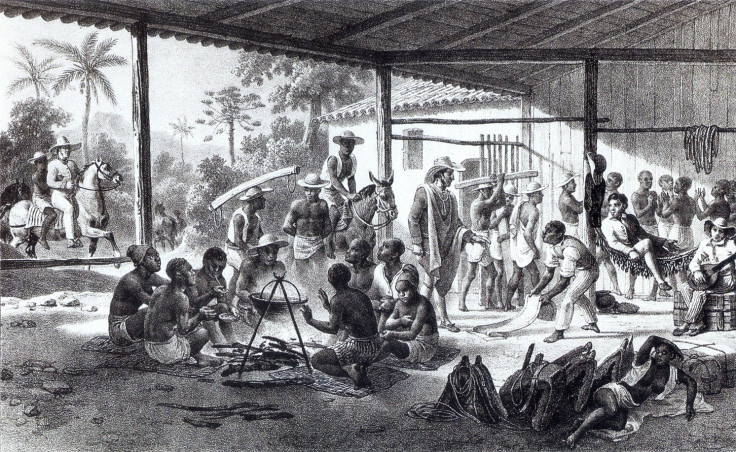First-ever sunken slave ship identified off the coast of South Africa

In a historic find, researchers have identified a slave ship that sank just off the coast of South Africa. It is the first recovery ever of the wreckage of a slaving ship that went down with slaves aboard.
The Portuguese ship set out in 1794 for Brazil with 400 slaves shackled in its bowels. As the vessel rounded the Cape of Good Hope 24 days into its four-month, 7,000-mile trip, it smashed on the reefs off Cape Town in a storm, reports the New York Times. The captain and crew escaped —and saved close to half the slaves, who were sold within days; 212 slaves died at sea.
The ship had originally been identified as a Dutch merchant ship but scientist discovered its true identity through documents and telltale hardware as the Sao Jose-Paquete de Africa, which set out from Mozambique Island.
The ship's manifest also noted that the vessel set sail from Lisbon with 1,500 iron blocks as ballast — a "signature for slaving," according to a historian — used to offset the weight of living cargo. Dives to the chilling wreck also turned up rusted shackles, and, eventually iron bars.
A memorial will be held Tuesday with soil from Mozambique Island deposited on the wreck, before artefacts are sent to the National Museum of African American History and Culture in Washington, DC on a 10-year loan. The iron ballast and a wooden pulley will be among the items exhibited.
"We hope to have shackles," Lonnie G. Bunch III, the founding director of the new museum, told the Smithsonian magazine. "What I'm really hoping for, and we're still trying to make sure that we've got, is a piece of wood from the hull of the ship where the enslaved people were held." Showing them, will "help people get a better understanding of the slave trade."
The exhibit space will be designed like a memorial, said Bunch. "You go in, you're going to see a few artifacts in darkened space," he said. "You're going to hear some of the descriptions of the trade, maybe a few words from some of the people who experienced it."
© Copyright IBTimes 2025. All rights reserved.






















